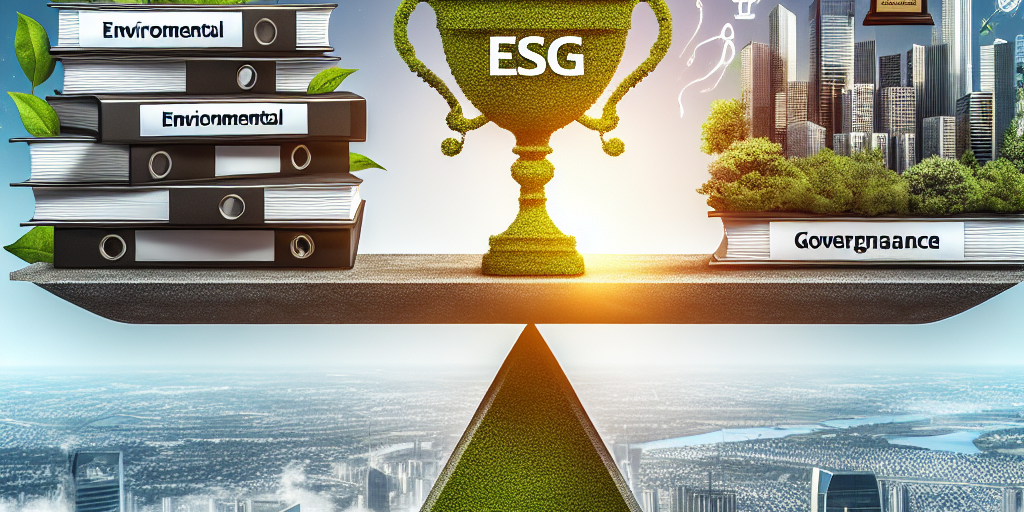In today’s ever-evolving business landscape, Environmental, Social, and Governance (ESG) considerations have emerged as pivotal drivers of corporate strategy. Once viewed primarily through the lens of risk management, ESG is now recognized as a critical component of competitive advantage. Companies that embrace ESG principles not only mitigate risks but also enhance their brand value, foster customer loyalty, and drive long-term profitability.
Understanding ESG: More Than Just Compliance
ESG refers to the three central factors that measure the sustainability and societal impact of an investment in a company.
-
Environmental criteria consider how a company performs as a steward of nature. This includes how it manages risks and opportunities related to environmental challenges, such as climate change and resource depletion.
-
Social criteria examine how it manages relationships with employees, suppliers, customers, and the communities where it operates. This extends to labor relations, diversity, equity, and inclusion.
- Governance deals with a company’s leadership, executive pay, audits, internal controls, and shareholder rights, ensuring that companies operate with transparency and accountability.
Historically, ESG initiatives were often perceived as a burden — an additional layer of compliance or an obligation imposed by regulatory bodies. However, the shift in perspective within the corporate world sees ESG as a vital framework for sustainable growth, aligning corporate interests with societal expectations.
Mitigating Risks Through ESG
Integrating ESG frameworks helps businesses identify and manage risks associated with environmental sustainability, social justice, and ethical governance. Companies are increasingly recognizing that failing to address these factors can lead to substantial financial and reputational damage.
-
Environmental Risks: With climate change and environmental degradation, companies face risks from regulatory penalties, operational disruptions, and shifts in market preferences. Integrating sustainability can help firms mitigate risks related to resource scarcity and environmental disasters.
-
Reputational Risks: Social media and heightened consumer awareness have resulted in increased scrutiny of corporate behavior. Missteps concerning labor practices, diversity, or community engagement can lead to public backlash and long-lasting damage to a company’s reputation.
- Governance Risks: Poor governance can result in financial fraud, corruption scandals, and poor decision-making that may adversely affect stakeholders. Establishing strong governance frameworks assures investors and customers that the company operates with integrity.
Unlocking Competitive Advantage: The Business Case for ESG
Emerging data indicates that ESG-oriented companies often outperform their peers financially. Here’s how ESG can translate into a competitive edge:
-
Enhanced Brand Loyalty and Trust: Consumers are increasingly making purchasing decisions based on a company’s social responsibility and sustainability practices. Companies that excel in ESG often enjoy elevated brand loyalty and consumer trust.
-
Attracting Talent: A strong commitment to ESG practices is a magnet for talent, particularly among younger generations who prioritize working for socially responsible companies. Organizations that actively promote diversity and inclusion create a more innovative and engaged workforce.
-
Investment Attraction: Investors are increasingly factoring ESG metrics into their decision-making processes. Higher ESG ratings can lead to better access to capital and a lower cost of capital as institutional investors seek to align their portfolios with sustainable practices.
- Long-term Resilience: Companies that proactively integrate ESG considerations are often more adaptable to changing market conditions. By focusing on sustainability and social responsibility, organizations can create resilient business models better equipped for long-term success.
Conclusion: The Path Forward
As the landscape of business continues to evolve, the integration of ESG principles is no longer a choice but a necessity for organizations aiming for long-term growth and sustainability. Businesses that prioritize ESG factors are not only protecting themselves from reputational and operational risks but are also positioning themselves as leaders in their industries.
ESG is not solely about doing good; it is fundamentally about being smart in business. Shifting the perspective from compliance and risk management to a strategic initiative focused on sustainable growth provides businesses with both the tools and the motivation to thrive in a rapidly changing world. The time has come to fully embrace the potential of ESG as a crucial element in the quest for competitive advantage.










